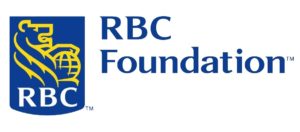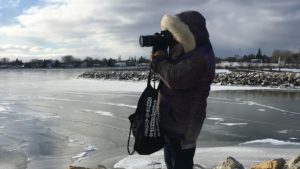Summer Institute II: Indigenous Architectures | August 6 – 16, 2019
Faculty: Joar Nango
Plug In Institute of Contemporary Art hosts Summer Session II: Indigenous Architectures led by faculty member Joar Nango.
Foregrounding Indigenous approaches to design and alternative models of social space, Nango will lead participants through a series of texts, discussions, guest lectures, workshops, and studio time for the first week, engaging local, Winnipeg-based, Indigenous architects and thinkers. Participants will be encouraged to produce individually, with the possibility to work with Nango on a new piece by the Winnipeg Rivers, generating a reciprocal engagement to producing work in the second week. The seminar and workshop is open to visual artists of all kinds as well as writers, critics and scholars. The second session will run from August 6th to August 16th.
FACULTY:
Joar Nango: A long proponent of printed matter and its political potential to mobilize larger social transformations, Nango along with collaborators have fulfilled publication projects including The Indigenuity Project, The Normadic Library and the self-published zine series Sámi Huksendáidda: the Fanzine. Nango has been part of a number of exhibition projects throughout Canada and elsewhere. Among which includes, the Ottawa Art Gallery, Vancouver’s Western Front, Gallery Deluxe in Halifax, and The National Museum of Art, Architecture and Design in Oslo, Norway and Sydhavn Station in Copenhagen, Denmark. He recently presented European Everything at Documenta 14 in Athens and Kassel in 2017.
PARTICIPANTS:
Albyn Carias is an interdisciplinary artist that is originally from El Salvador. He immigrated to Canada at the age of 13 with his family and is fluent in Spanish and English. Albyn’s artistic research focuses on experimentation with unconventional materials to push the complexity of art beyond its imposed borders. His major focus is working with the Latino community in Brandon Manitoba, with an emphasis on immigration. He develops community-based artworks that discuss the barriers that Latino immigrants face everyday. Albyn graduated with a degree in Fine Arts from Brandon University Ishkabatens Waasa Gaa Inaabeteg.
Carrie Allison is an Indigenous mixed-ancestry visual artist, writer, arts administrator and educator, born and raised on unceded and unsurrendered Coast Salish Territory (Vancouver, BC). Situated in K’jipuktuk since 2010, Allison’s practice responds to her maternal Cree and Metis ancestry, thinking through intergenerational cultural loss and acts of resilience, resistance, and activism, while also thinking through notions of allyship, kinship and visiting. Allison’s practice is rooted in research and pedagogical discourses. Her work seeks to reclaim, remember, recreate and celebrate her ancestry through visual discourses. Allison holds a Master in Fine Art, a Bachelor in Fine Art and a Bachelor in Art History from NSCAD University.
David Peters is from the East coast where the ad hoc response necessitated by living against resource depletion means that people become clever in lean times. He knows that work set against lack is a creative endeavor, and feels best about his work is when it has some lived element, when it seems to become indistinguishable from everything else. Peters is part of an epistolary drawing and writing practice that bridges distances between friends and part of a collaborative practice with artist Leah McInnis under the name Club Assembly. Peters and McInnis work with salvaged materials to create arenas for the curious.
Evan Taylor is a Métis architectural intern and designer from Winnipeg, Manitoba. His interests lie in exploring spatial narratives, through drawing and making, as a participatory tool for architectural discourse within complex cultural scenarios and environmental conditions. Recent works look toward imagining constructive and collaborative futures for remote settlements and indigenous communities in northern Canada. He has travelled to remote First Nations communities to study the conditions of current housing stocks, and was recognized by Architects Without Borders’ “Indigenous Housing Competition” in 2018 for his proposal “Towards a New Normal” which approaches indigenous housing not as a singular design solution, but as a consequence of the socio-political and environmental variables that precede the creation of the dwelling itself. Evan holds a Bachelor of Environmental Design from the University of Manitoba’s Faculty of Architecture and a Master of Architecture from Carleton University’s Azrieli School of Architecture and Urbanism. He currently lives in Toronto, working towards a professional architectural license.
Lorraine Albert is an interdisciplinary artist, educator, and designer whose work is rooted in conceptual ideation and lateral thinking, with an ongoing interest in pedagogy, design, and counterhegemonic theories. Her artistic and design practices put forth notions of space (place), body (movement), and time (pace) converge. She has a degree in Graphic Design (Dawson College), a Bachelor of Fine Art (Concordia University) and a Masters of Fine Art (NSCAD University). Lorraine presented a paper on alternative art pedagogies (2017) and co-facilitated a round-table addressing Land & Treaties (2018) at the Universities Art Association of Canada (UAAC) conference and was a panelist (2017) at the International Council of Fine Arts Deans (ICFAD) conference in Halifax, NS. Most recently, Lorraine was a scholar at the Centre for Art Tapes and presented choreographic work with Kinetic Studio, Halifax. Her work has appeared in festivals, galleries, and at various sites in Canada and Australia, including “Steps Forward,” a permanent installation on the Skyline Trail in the Cape Breton Highlands National Park.
Alicia Marie Lawrence is an urban contemporary artist working in two-dimensional mediums including painting, drawing and mixed media, and also works in the realm of textual art and creative writing, and integrating text and syllabics with visual media. Alicia is competent in the use of digital media, graphic design and communications, and is interested in the way drawing awareness to signage structures knowledge of our environments. At Plug In, she hopes to learn about ways to connect visual messaging in space to creative dialogues that nourish, energize, stabilize, and form an emotional, social and spatial compass. Alicia engages in process, technique and aesthetic, as statement, and continually explores the relation between artist, subject and viewer. She has completed coursework in visual art studio at Emily Carr University of Art + Design and Vancouver Island School of Art, and holds a Certificate in Art & Design Studio Skills from the Ontario College of Art & Design, and a Graduate Certificate in Creative Writing from Humber College.
Julie Gendron is an artist and designer who works within the areas of interactivity, accessibility, playfulness and change. Julie designs and facilitates experiences that allow people to explore and create their own point of view, culture and communities. Julie completed her graduate work in the department of Art, Design and Technology at Concordia University specializing in Participatory Design. She has received awards and grants from the Japan Media Art Festival, Canariasmediafest (Spain), Canada Council for the Arts, BC Arts Council, Centre interuniversitaire des arts mediatiques, Dora and Avi Morrow Award for Excellence in Visual Arts and BC Film. She has shared her work at various conferences in Canada, Spain, Japan, Australia and the US. Julie currently works independently under the guise of desiringproductions.com doing digital strategy, creative design, interaction strategy and installations.
Our Summer Institute in 2019 were generously supported by the RBC Foundation and Johnston Group.





